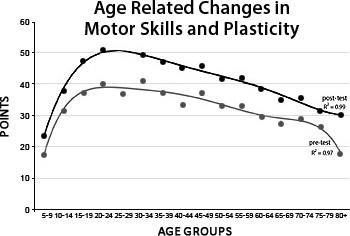
In view of the current economic crisis, stress has soared to critical levels in many parts of the world and is threatening people’s physical, mental and emotional health. If we are not careful to identify what is causing our stress and learn new skills to manage it, the consequences can stretch far beyond the present.
HeartMath Institute Research Director Dr. Rollin McCraty recently went online to present a special and timely webinar, How Practicing Coherence Enhances Cognitive Functions and Helps Offset Cognitive Decline, and offered HMI members his insights and practical knowledge for navigating these uncertain times.
McCraty cited a recent CNN poll to illustrate the gravity of current conditions. “Most Americans are scared right now,” he observed, noting that the pollsters have “never seen these kind of ratios, where 75 percent of Americans feel things are going badly in the U.S., and that 6 in 10 are saying how bad it is, how bad they’re feeling about this and how stressful it is. … That’s just likely to grow until this current crisis resolves itself. That’s going to take some time. It’s certainly affecting a lot of people, ours included.”
Emotions people naturally experience at times like these – anxiety or worry, anger, fear and other negative feelings – invariably lead to stress and “tend to deplete the system and cause a desynchronization in the activity in our brain and nervous system, which directly impairs cognitive functions,” McCraty said. “On the other hand, when we have a more positive outlook – we’re feeling hopeful, appreciative, caring, these types of feelings – that naturally has a very different effect in terms of the hormonal system and the way the nervous system processes information.”
When Does Cognitive Decline Begin?
Among questions participants asked prior to the hour long webinar was one related to stress and the decline of cognitive processes. It is well established that stress is a major contributor to the decline of our cognitive functions, McCraty said. “One of the major influences on cognitive functions – our ability to focus, pay attention, remember things, find our car keys, those kinds of things – has to do directly with how much stress we’re experiencing.”

Using one of several graphics and charts webinar participants were able to view on their monitors, McCraty showed the age range when cognitive decline typically begins – sometime around age 25 to 35. Researchers have determined this through different types of studies, particularly ones that assess people’s motor skills at various ages, he said.
If it seems a bit depressing that our mental capabilities begin declining as early as our mid-20s, McCraty noted that each of us has the capacity to slow the process, remain alert and retain virtually all of our brain power all the way into our 80s and 90s. In explaining how, he discussed a process known as plasticity. “All that really means,” he said, “is that the brain and nervous system have the ability to change, to rewire themselves… The brain retains this ability to change, to rewire, all throughout the aging process.”
We know from researchers and the medical sector the many dangers of stress, but McCraty explained to participants that each of us can effectively combating it and that HeartMath is uniquely positioned and qualified to help us succeed at this crucial time. HMI, founded in 1991, has conducted many years of extensive research and field studies into human stress and emotions and has developed science-based, proven services, tools and technology to help people improve their health and cognitive performance.
“These are especially the times that HeartMath was created for,” McCraty said, explaining that learning to achieve a state of coherence is the key to reducing stress and balancing our emotions. He described coherence as “a distinct mode of harmonious physical and psychological functioning that promotes emotional stability and optimal cognitive performance. … It’s where our mind and emotions are all in sync, as is the nervous system that underlies those abilities to have thoughts and feelings.”
During the Oct. 25 webinar, McCraty described in laymen’s terms the intricate processes of heart-brain interactions and the defining role our heart-rhythm patterns play in communicating information to the brain that determines how we think, feel and act. He emphasized the importance of learning how we can make our heart-rhythm patterns work to our benefit by learning coherence-building skills, including replacing negative emotions such as anger, anxiety and guilt with healthier responses such as compassion, caring and appreciation.
When practiced regularly, coherence, also called heart-rhythm coherence, can help us actually replace old, unhealthful heart-rhythm patterns with new beneficial ones. Eventually, often within six weeks or so, he said, the brain and nervous system rewire themselves to recognize these new heart-rhythm patterns as your new baseline – the norm. At this point, the brain and nervous systems are synchronized with the heart and other bodily systems and the brain has a kind of repository of healthy responses from which it selects during times of stress.
McCraty warned against opting to simply live with stress, explaining that “learning some tools and using them, especially in these kind of times is really important. Because if we really just process the stress and let it accumulate, then that causes even greater problems and makes it even harder to deal with the challenges that we have.”
Heart Coherence Is:
- A distinct mode of harmonious physical and psychological functioning that promotes emotional stability and optimal cognitive performance.
- When heart, mind and emotions are in energetic alignment and cooperation.
- A state that builds resiliency – personal energy is accumulated, not wasted, leaving more energy to manifest intentions and harmonious outcomes.
Use Coherence To Change Your Brain
“By learning heart-coherence tools,” he said, “that helps us to build a state that builds our resiliency. That’s where we accumulate energy, instead of draining energy. That leaves us more energy to manifest our intentions to create harmonious outcomes in the things we want to do.”
In addition to using the emWave®2 or emWave® Pro for Mac and PC software program regularly, even daily, to monitor and manage stress at this critical time, McCraty advised using HeartMath’s Freeze Frame® Technique to take a timeout anytime a stressful situation, encounter or feeling arises so you can immediately get things under control. The webinar participants had the distinction of being the first people outside of HeartMath staff to learn a new version of the internationally acclaimed technique.
While explaining Freeze Frame® steps, McCraty said a particularly important perception to neutralize is our projections. “So much of our stress is created by our projections of what might or might not happen even though it hasn’t really happened yet,” he explained. “The body doesn’t really know the difference. We’re projecting that the worst case is happening. That creates the same hormonal stress patterns as if it really happened.”
Two additional tips McCraty offered for these unsettling times are what he called The Prep and Recoup and Recover:
- The Prep: Before going into any type of stressful situation, such as a meeting or making a decision, do a Freeze Frame or use one of HeartMath’s other techniques for a few minutes to build coherence. The emWave2 or emWave Desktop for Mac and PC each can help measure your stress level quickly and help you build up your coherence.
- Recoup and Recover: There is a lot these days to get stressed, angry or frustrated about, things as simple as going to the grocery story or getting cut off in traffic. Dealing calmly and thoughtfully with such annoyances or any stressful situation that arises in your daily endeavors will be a lot easier if you begin your day, every day, by taking five or 10 minutes in the morning and setting a coherent tone for the day by using the emWave.
To purchase and view the webinar video, How Practicing Coherence Enhances Cognitive Functions and Helps Offset Cognitive Decline with Dr. McCraty, click here.
To learn more about stress, heart-brain interactions and the HeartMath Institute’s research, click here.
All Members receive Members Only webinars Free. To become a member, click here.

